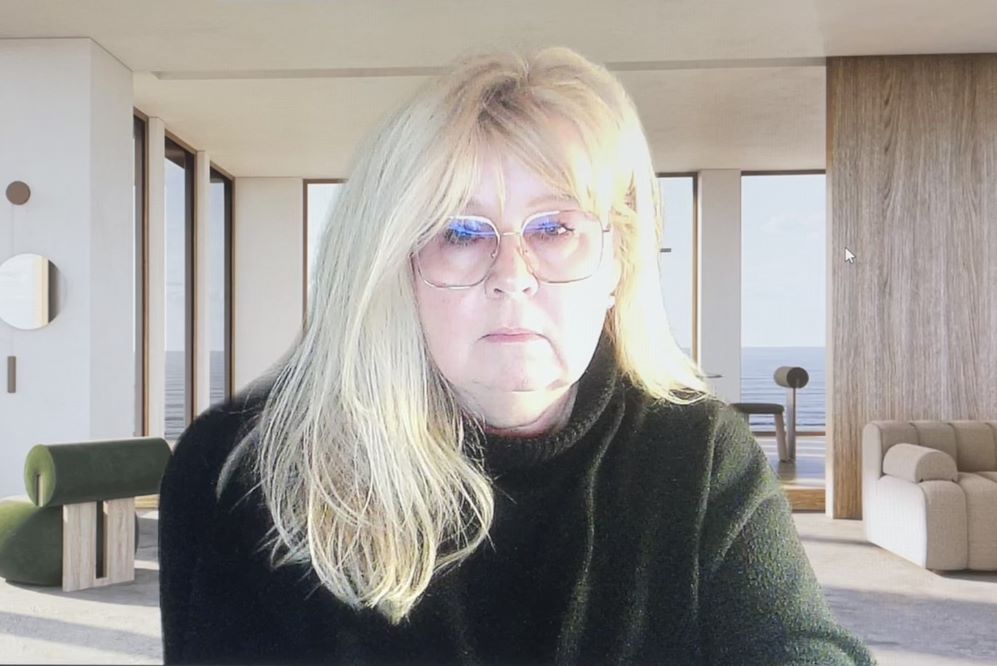“Accept that we are different and that it’s good.”
Katarina Berg has been responsible for the development of web and UX at SPP for more than 10 years. She has been working as a developer since the 90s and currently leads a team of over 20 people. A few months ago, she started a collaboration with Unicus.
– I thought it was so much fun and sounded very interesting, says Katarina. I’m always a bit curious about things I don’t know much about.
Diversity and inclusion are central issues at SPP as a workplace. Katarina has been a manager for many years and always tries to find new ways to build a dynamic team. She talks about diversity as a natural thing. Where does her natural strength come from?
– I was born on March 8th, International Women’s Day, so I have always been ingrained in the idea of justice and equality. For me, it’s obvious that everyone is equally valuable.
Internal diversity also benefits customers
It’s about informing but also daring to try. Katarina’s strong commitment to inclusion is unmistakable. She explains further that diversity not only benefits the team and organization, but customers benefit too.
– Our target audience here at SPP is a cross-section of the entire Swedish population. If we are going to build systems and services for our customers, we need that diversity internally as well.
As of now, a Unicus consultant has been working at SPP for a few months. For Katarina, the process of hiring a consultant from Unicus was exactly the same as with other consultants. For her, it was important that they had a stable group in place with a clear mission. Working with people who are different from oneself is seen as a strength. It sparks collaboration in the whole team, enabling everyone to dare to speak their mind:
– I believe it becomes a better world if we just accept that we are different, and that’s good. There’s a bit more forward-leaning atmosphere if you have a diversified group. I feel that everyone makes a little more effort for each other.
When asked about how large companies can develop their inclusion efforts, Katarina emphasizes the entire matching process. Unicus consultants don’t go through interviews; instead, they have conversations with those who will work closely together. If the conversation feels good and the right skills are in place, the process continues. The next step is for the entire team to meet the consultant manager from Unicus, who provides a brief on-site training.
– Therese was there and talked about autism in general. What it means and to prevent preconceived notions, so there’s no gossip. It becomes an open conversation, where we lay the cards on the table so there are no misunderstandings.
One challenge is the lack of knowledge about autism
After meeting Unicus, Katarina has a greater understanding of what can be challenging for a person with autism/aspergers, especially when it comes to recruitment. Despite good competence, social selling becomes a significant obstacle for many.
– The whole onboarding process is a hindrance for them. Maybe you’re not your best self in an interview, which means you get disqualified from getting a job that you would be perfect for. If only people would take the time and understand what it means to have autism…
She takes a deep breath, and says that we need to openly discuss discriminatory issues. Since we know how challenging it is for many with autism to enter the job market, companies need to have these conversations.
– Many think that gender equality is some kind of diversity or that bringing in someone with a foreign name is diversity. I think diversity is much more than that. For me, it’s about mixing people with different backgrounds, personalities, and experiences to create diversity.
Katarina believes the biggest challenge is a lack of knowledge about autism. She has only received positive feedback about the collaboration with Unicus, and the new consultant is now a part of the team. The rest of the company might not know as much about the work with diversity and the benefits that come with it. How many others in the organization are aware of Unicus’ work is harder to say. She emphasizes that there needs to be better information in the operations on how companies can work with inclusion and recruitment.
– We could set up an inspirational lecture with Unicus here at SPP’s office, so more people can learn about autism and inclusion. I think that would be an eye-opener for many, says Katarina.

